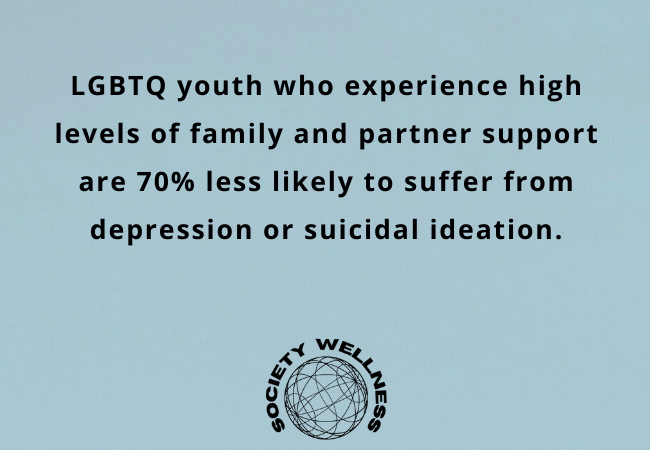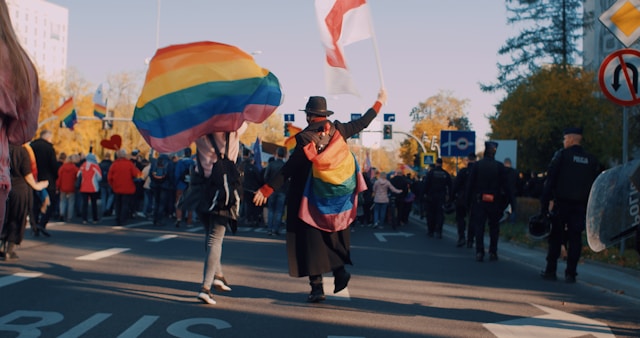Mental health is not just an individual journey—it’s something that deeply affects and is affected by the relationships we hold most dear. In same-sex relationships, mental wellness becomes even more nuanced, influenced by layers of identity, societal stigma, and relationship dynamics that often go unrecognized in traditional therapeutic settings.
LGBTQ couples therapy offers a powerful solution. It allows partners in same-sex relationships to support one another’s emotional wellbeing while strengthening their connection, navigating identity-based challenges, and creating a shared path toward healing.
At LGBTQ Behavioral Health Treatment Center Massachusetts, we specialize in helping same-sex couples explore their mental health needs with compassion, cultural competence, and clinical expertise. Through LGBTQ Couples and Marriage Counseling in Massachusetts, affirming therapy, and intensive services like PHP and IOP, we help couples move from surviving to thriving—together.
Why Mental Health Support Matters in Same-Sex Relationships
Love alone isn’t enough to protect a relationship from stress. LGBTQ couples often experience heightened emotional strain not because of something wrong in the relationship—but because of the external pressures and internalized messaging they have to navigate daily.
Common mental health challenges in same-sex relationships include:
- Chronic stress due to societal stigma or discrimination
- Family rejection or lack of support
- Unequal levels of outness or identity exploration
- Anxiety or depression rooted in trauma or internalized homophobia
- Stress related to gender affirmation or transitioning
- Emotional disconnection due to past relationship wounds
- Sexual or intimacy issues stemming from shame, dysphoria, or past abuse
Without the tools to navigate these issues, partners can feel isolated—even while in a loving relationship.
The Role of LGBTQ Couples Therapy in Promoting Mental Health
LGBTQ-affirming couples therapy provides a safe, inclusive, and culturally competent environment where both partners are supported emotionally, mentally, and relationally.
Therapy doesn’t just help with crisis—it helps with:
- Early prevention of emotional breakdowns
- Deepening empathy and emotional literacy
- Strengthening co-regulation and support between partners
- Developing shared strategies to face outside stress
- Validating the complexities of being in a same-sex relationship
When mental health struggles are named and held in partnership, couples don’t just survive them—they grow stronger because of them.
How LGBTQ Couples Therapy Strengthens Relationship Mental Health
Here are the specific ways LGBTQ couples therapy can uplift and stabilize your relationship’s emotional foundation:
1. Normalizing Mental Health Conversations in the Relationship
In many same-sex relationships, partners avoid discussing mental health for fear of appearing weak or being a burden. This silence often stems from:
- Cultural stigma
- Internalized ideas of self-sufficiency
- Lack of language around feelings
Therapy helps normalize conversations like:
- “I’m not okay right now.”
- “I’m having a hard time showing up for you.”
- “I need help, and I’m scared to ask.”
A therapist creates a no-shame zone for vulnerability, helping both partners feel safe sharing emotional pain.
2. Creating Shared Language Around Emotional Needs
Emotional disconnection is common when partners don’t know how to express their needs—or misunderstand the signals the other is giving.
Through LGBTQ Couples and Marriage Counseling, you’ll learn:
- How to label your feelings without blaming your partner
- How to request support clearly and respectfully
- How to hear a “no” without taking it personally
- How to de-escalate before things get explosive
This shared emotional vocabulary can dramatically reduce miscommunication and conflict.
3. Supporting Partners with Depression, Anxiety, or Trauma
When one partner is living with a mental health condition, the other may feel helpless, overwhelmed, or even resentful.
Therapy provides both partners with:
- Tools to avoid burnout while offering support
- Strategies for responding without triggering further shame
- Validation of both the one struggling and the one supporting
- An emotional plan for episodes of depression, anxiety, or panic
Rather than falling into roles of “caregiver and patient,” therapy helps couples maintain mutual respect, autonomy, and intimacy.
4. Rebuilding Intimacy Impacted by Mental Health Challenges
Mental health struggles often affect intimacy:
- Depression may lower desire or increase isolation
- Anxiety may cause emotional reactivity or physical avoidance
- Past trauma may block physical closeness
In LGBTQ Queer Therapy, clinicians help couples:
- Understand the reasons behind intimacy changes
- Reframe intimacy to include emotional and spiritual closeness
- Address shame or dysphoria that may impact desire
- Build new patterns of safety and connection
This healing process fosters intimacy that’s compassionate, patient, and affirming.
5. Navigating Identity Struggles Together
Coming out, transitioning, or questioning one’s identity can introduce major stress into a relationship.
Couples therapy provides a space to:
- Explore fears around identity change and loss
- Discuss how transitions affect roles, attraction, and connection
- Support a partner’s growth without feeling left behind
- Grieve what’s changing while celebrating what’s emerging
This is especially critical for couples where one partner is nonbinary, genderfluid, or trans, and the other is learning to adjust, support, and grow alongside them.
6. Building Co-Regulation Skills for Mental Wellness
Healthy couples co-regulate—they help each other calm down, stay present, and return to safety. But most of us were never taught how to do that.
Therapists teach couples how to:
- Recognize signs of emotional flooding
- Pause arguments to prevent harm
- Validate each other’s emotions, even when they’re confusing
- Use breathwork, grounding, and soothing touch to co-regulate
These tools promote nervous system stability, which directly improves mental health.
7. Helping Couples Manage External Stress Together
External pressures often have internal consequences. LGBTQ couples frequently face:
- Misgendering or deadnaming in public
- Homophobia from family or institutions
- Discomfort at work or in religious spaces
- Legal or parenting barriers
Therapy helps couples:
- Create shared scripts to respond to discrimination
- Plan family engagement boundaries
- Practice allyship inside and outside the relationship
- Decompress from external tension without turning on each other
When couples can say “us vs. the problem” instead of “me vs. you,” they become more resilient.

What If One Partner Needs More Intensive Mental Health Support?
Sometimes, one or both partners may be dealing with severe emotional distress, trauma, or crisis.
That’s when deeper care—beyond couples therapy—is essential.
We offer two intensive programs tailored for LGBTQ clients:
LGBTQ PHP Treatment in Massachusetts
(Partial Hospitalization Program)
- 5 days/week of structured therapeutic support
- Individual therapy, medication management, and group sessions
- Focus on stabilization, emotional regulation, and trauma recovery
- Ideal for clients at risk of hospitalization or severe functional impairment
LGBTQ Intensive Outpatient Program in Massachusetts
- 3–5 days/week of flexible care for those who need more than weekly therapy
- Great for people living with depression, anxiety, PTSD, or relational trauma
- Includes group therapy, coping skill development, and identity exploration
Why LGBTQ Behavioral Health Treatment Center Massachusetts?
At LGBTQ Behavioral Health, we don’t just treat symptoms—we understand identities, honor relationships, and affirm your lived experience.
We’re more than LGBTQ-friendly—we are an LGBTQ-centered therapeutic environment offering:
-
Expert Clinicians: Our therapists specialize in LGBTQ mental health, trauma recovery, relationship dynamics, and gender-affirming care.
-
Affirming Approach: We recognize that mental health and identity are deeply connected. Your relationship is valid. Your struggles are real. Your healing matters.
-
Comprehensive Services: From weekly couples counseling to structured support through PHP and IOP programs, we offer care at every level of need.
-
Inclusive of All Relationships: Whether you’re in a same-sex, nonbinary, polyamorous, or transitioning partnership, we create space where your love and journey are fully supported.
-
Real Tools, Real Growth: We equip couples with communication strategies, emotional regulation skills, and mental health tools that actually work—outside the therapy room and in everyday life.
We know what it means to walk the LGBTQ path. And we’re here to walk it with you—toward clarity, connection, and healing.
Conclusion
In same-sex relationships, supporting one another’s mental health isn’t always easy. But with the right guidance, it becomes one of the most powerful expressions of love, care, and commitment.
LGBTQ couples therapy is not about fixing what’s broken—it’s about learning how to grow together, communicate more honestly, and support one another through anxiety, depression, trauma, and identity exploration.
Whether you’re feeling disconnected, overwhelmed, or simply want to build a stronger emotional foundation, our affirming therapists are here to help. Your relationship deserves support. Your mental health deserves care. Your healing deserves a place where you’re seen, heard, and understood. Call us today at 888.964.8116, Let’s build a partnership that prioritizes love, safety, and emotional wellness—together.
FAQ on Supporting Mental Health in Same-Sex Relationships
How can LGBTQ couples therapy support mental health?
It provides a safe, affirming space to talk about mental health, understand emotional needs, and strengthen communication between partners.
What mental health issues are common in same-sex relationships?
Partners may experience depression, anxiety, trauma, identity struggles, or stress from external discrimination—all of which therapy can help manage together.
Can therapy help if only one partner is struggling mentally?
Yes. Therapy helps both partners communicate, create supportive boundaries, and co-regulate without resentment or burnout.
How does therapy improve emotional intimacy in LGBTQ couples?
Therapists guide couples in rebuilding trust, increasing emotional expression, and navigating intimacy affected by dysphoria or mental health challenges.
What if a partner needs more support than therapy offers?
We provide LGBTQ PHP and IOP programs in Massachusetts for structured, intensive mental health care that complements ongoing couples therapy.
Is LGBTQ couples therapy inclusive of all identities?
Absolutely. We affirm all genders, pronouns, and relationship models, including polyamory, trans/nonbinary identities, and neurodivergence.

